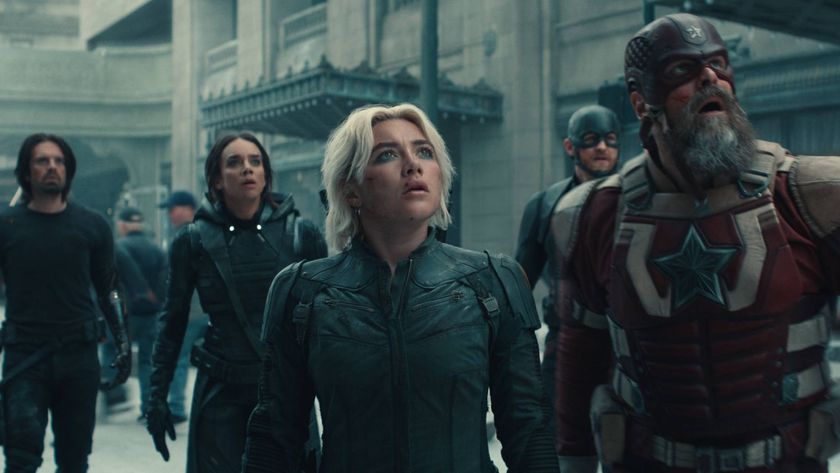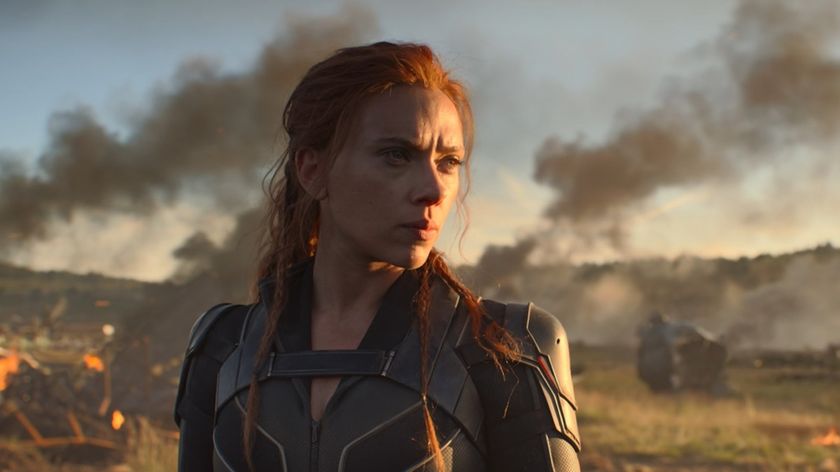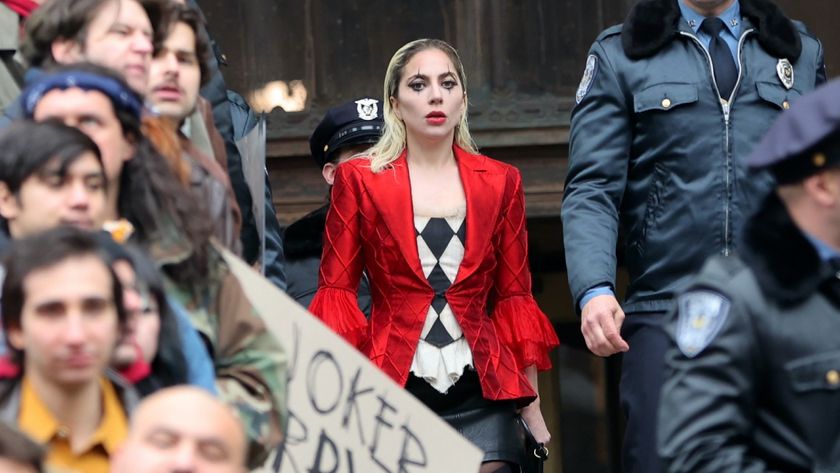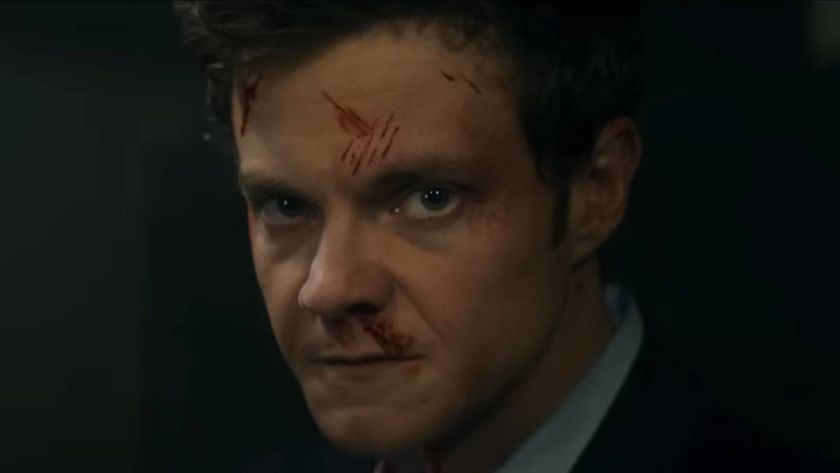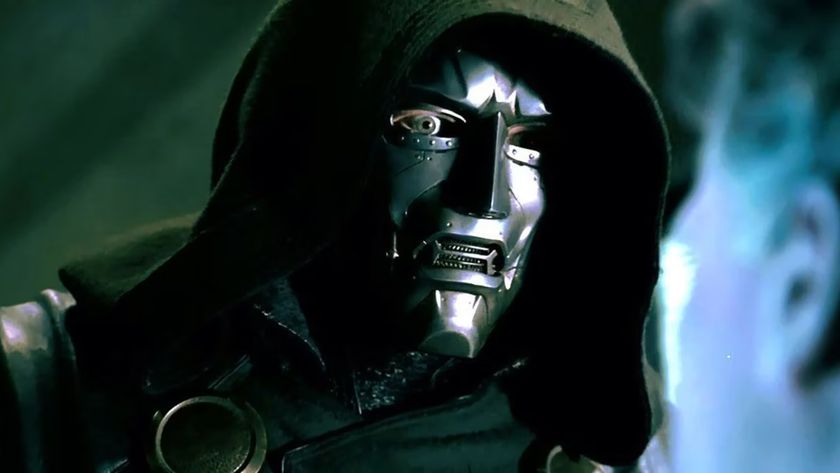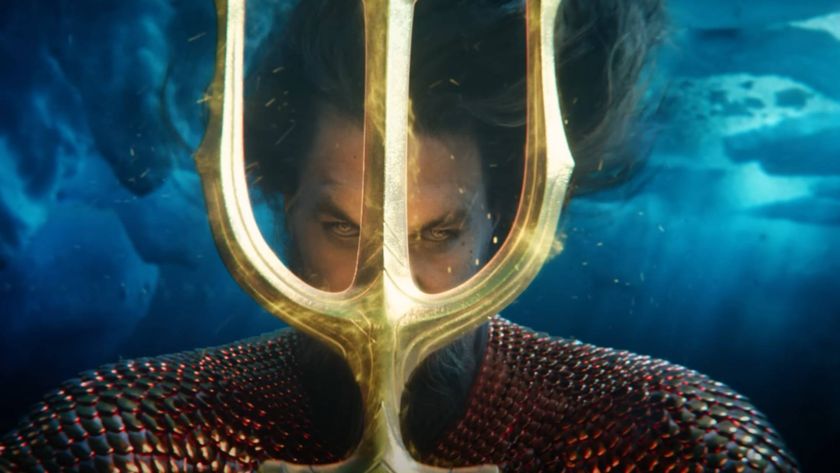Ant-Man director chats about small scale and sequels
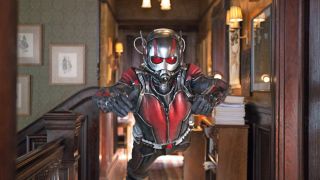
Shrink rap
"This is really a smaller scale movie for Marvel," says Peyton Reed, director of Ant-Man. If Reed realises hes just deployed the perfect pun he chooses not to acknowledge it. His films hero weaponises the very concept of smaller scale, after all an incredible shrinking man whose icky, insect-bossing powers make him one of the unlikelier players in the Marvel pantheon. Now hes made the big screen in a multi-generational tale that sees petty crim Scott Lang [Paul Rudd] inherit the hi-tech Ant-suit from original Silver Age crimefighter Henry Pym [Michael Douglas].
Reed had his own, rather more controversial legacy to inherit. Ant-Man was originally a dream project for fan fave director Edgar Wright. When Wright left the project in 2014 after almost a decade of development the internet, naturally, cried for blood. Reed was the man who braved the Twitter crossfire and stepped up to deliver the film to the screen.
Now hes briefly surfacing from what he calls deep, deep post-production, sparing time to talk to SFX while finessing Marvels latest stab at multiplex domination, the final film of Phase Two. Were getting the final visual effects shots, were mixing the reels, were doing last-minute visual tweaks and colour correction. Were finally seeing light at the end of the ant tunnel!
Read more in the latest issue of SFX. Click here for more excellent SFX articles. Or maybe you want to take advantage of some great offers on magazine subscriptions? You can find them here.
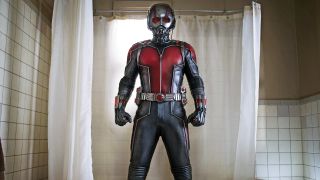
What appealed to you about Ant-Man as a character?
I liked that the comic book version of the Avengers was a pretty eclectic group of heroes. It was Thor, it was Hulk and Iron Man and Ant-Man. I liked the creative ways in which the powers would come into play in battles. And I always liked that he was an underdog, that he almost had this inferiority complex about his powers and probably even his size compared to these other heroes. And when youre a kid and youre out playing with your action figures, the size of Ant-Man is very appealing. I think thats the case in our movie as well. When Ant-Man shrinks down and suddenly theres a whole action sequence that takes place on the floor or on a train set or something, theres a real parallel to how kids use their imagination.
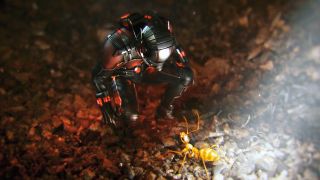
Its a very different power set to any of the other Marvel heroes weve seen
Exactly. There are other characters who have been shape-shifters and things like that, but the shrinking concept is a hallowed tradition in motion pictures, from The Incredible Shrinking Man to Honey, I Shrunk The Kids. Its a very science fiction concept. We certainly thought about it as a superhero movie but also as a science fiction film, as a shrinking movie. Thats his primary power, so how are we going to visualise that in amazing new, inventive ways with the technology that we have? Then again our secret weapon is his other power, the ability to control ants Thats the one thats intriguing to me. With Ant-Man and the Hulk you really understand how those powers are powerful. With Ant-Man its, Oh, he can shrink! Thats cool, I get that! And he can control ants?! Well, whats that going to do? One of the things I loved in the comics, and even more so in our movie, is that were going to show the audiences full-on how that power is cool, and how those armies of ants can be marshalled into doing amazing things.
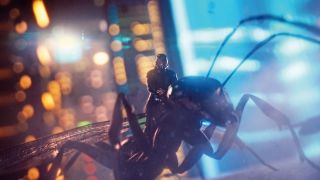
You found yourself stepping into a project that was essentially Edgar Wrights baby. Was that a tough choice for you?
Initially I thought, Well, heres a project that somebody else has developed off and on for a number of years. And I dont want to be involved in any movie that I cant make my own. Not out of a place of ego but as a comic book nerd. I have my own special relationship with the character of Ant-Man. I have my own thoughts about what I like and dont like about that character and what I think the tone of the movie should be. And then when I came in and met with Marvel and read the existing drafts and talked to them about the visualisation of the movie, that got me excited. This was a thing that was too good an opportunity to pass up. Any drama that had happened on Ant-Man far preceded me. All I knew is now theres no director on this movie, and I want to do it.
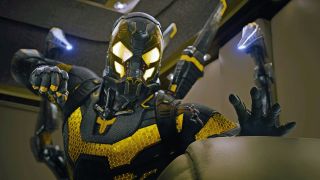
Youve got Yellowjacket as a foe, who was traditionally a hero in the comics. Why the choice to make him the villain in this?
In the comics Yellowjacket was originally Hank Pym. And Hank Pym had what one might call a touch of schizophrenia. He was Ant-Man, he was Giant-Man, he was Goliath, he was Yellowjacket, he was briefly Wasp, and then he was back to Ant-Man. When it came time to do the movie I think the feeling was well, why not take Yellowjacket which is, design-wise, amazingly cool. And it just made sense for the cinematic version to use this character, Darren Cross, who existed in the comics he was the villain in Scott Langs first appearance in Marvel Premiere issue 47. It made sense to create a version where he was Pyms protg, and had inklings of this buried Ant-Man technology that Hank wouldnt necessarily share with him. Now hes on his own and free to replicate and maybe even better this technology, but for the absolute opposite reasons that Hank Pym did. You do kind of see Darren Crosss point of view. You see what it is that made him become so resentful of Hank Pym and what led him down this really dark path.
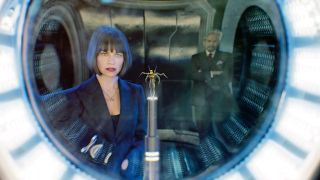
This is a movie that ultimately has to be part of the Marvel machine. Is it a challenge to keep this films voice distinct and still be part of that juggernaut?
Its interesting. You were asking about my decision-making process to come on this film. One of the things in the back of my mind was that these movies are huge, and extremely successful, and Marvel clearly has a way of doing things. Whats it going to be like to step into that environment? Im really pleased to report that not only do they allow idiosyncratic choices but they really encourage it, because no one is more aware of the danger of repeating themselves than Marvel. The cool thing about this universe which obviously parallels the Marvel comics universe that I grew up with is that you can create this larger universe that encompasses all these heroes, but also encompasses all these radically different tones. And to me thats kind of the equivalent of the comics world, where the artist who was drawing The Avengers was very different to the artist who was drawing Hulk, who was different from the artist drawing Iron Man and yet these characters could all show up in each others comic titles. Its astounding and now almost seems like a no-brainer, because theyve done it so well. But ten years ago it was almost unheard of. [Marvel] say, Lets make Ant-Man as distinctive and different as we can. I always look back at last year, 2014 they released Winter Soldier and they released Guardians Of The Galaxy. And I love both of those movies, but they could not be more tonally different. And they both succeed on their own and they both succeed as parts of that larger universe.

So could an Ant-Man sequel have an equally different tone?
I would be wide open, if we were fortunate enough to make a sequel to Ant-Man, to throw everything out of the window and go for a different tone. Itd be great!

Nick Setchfield is the Editor-at-Large for SFX Magazine, writing features, reviews, interviews, and more for the monthly issues. However, he is also a freelance journalist and author with Titan Books. His original novels are called The War in the Dark, and The Spider Dance. He's also written a book on James Bond called Mission Statements.
